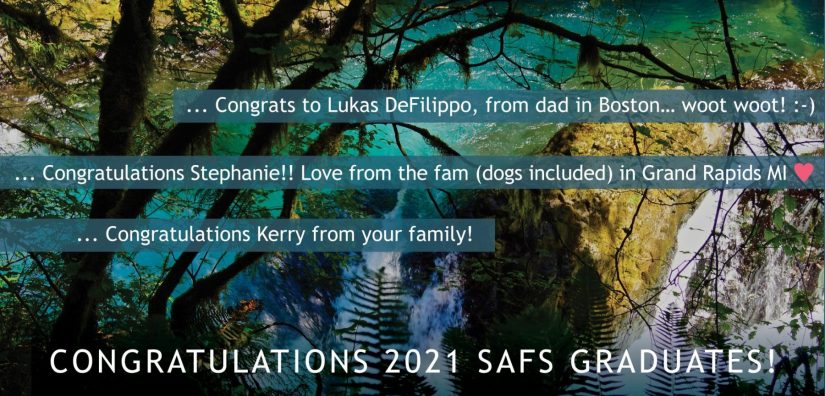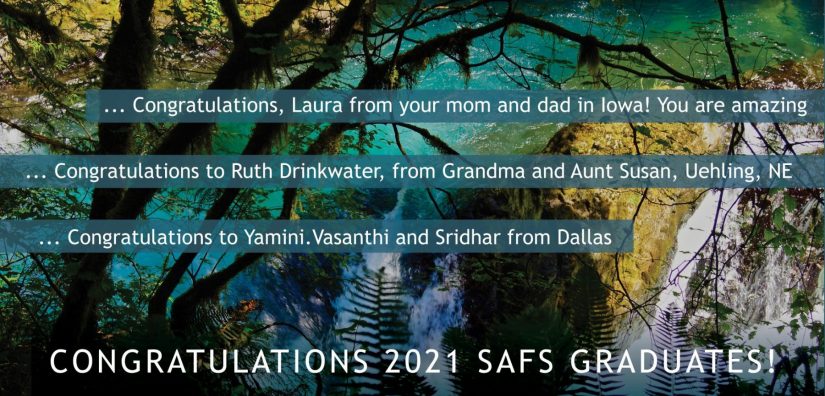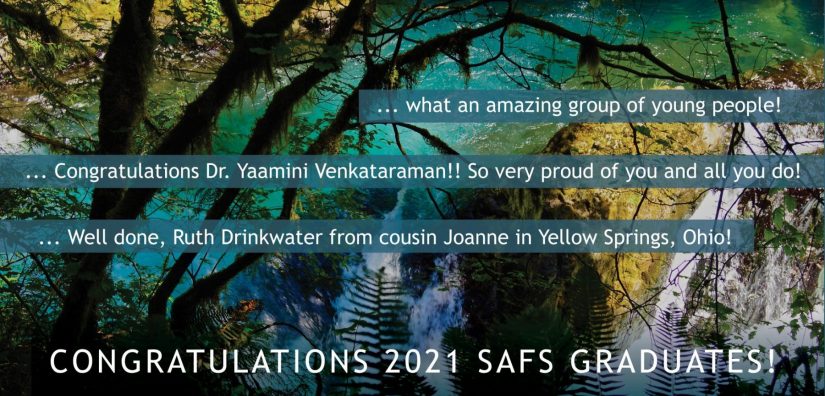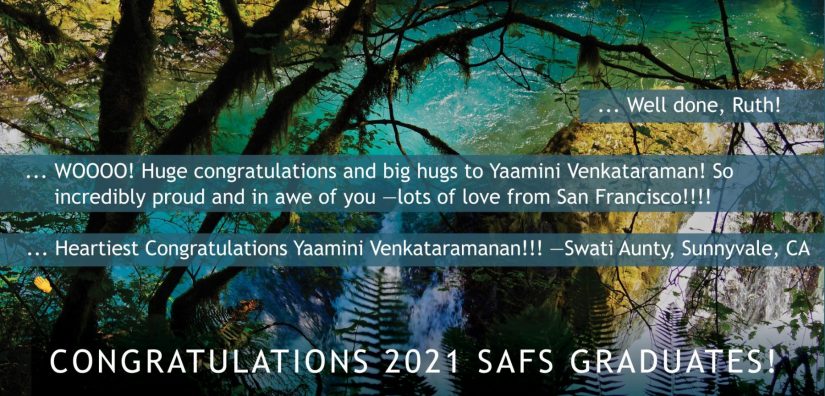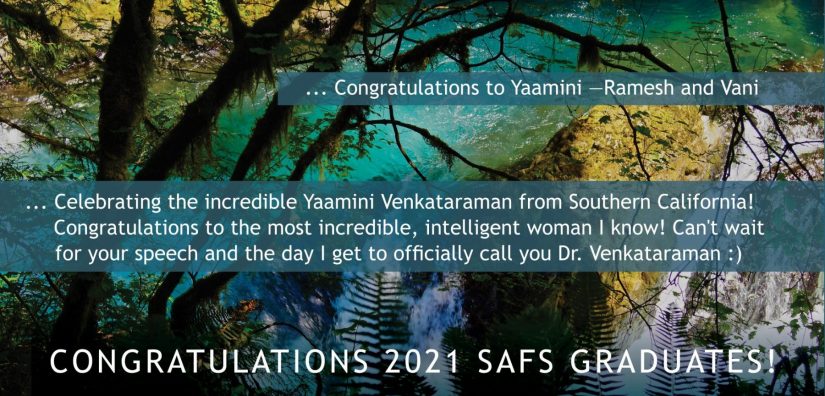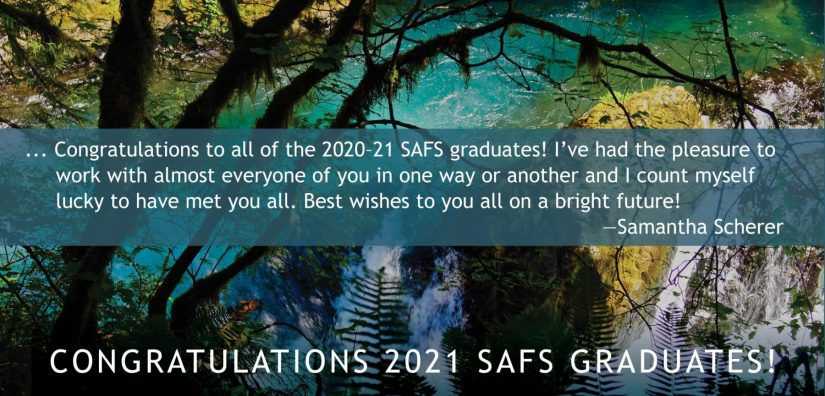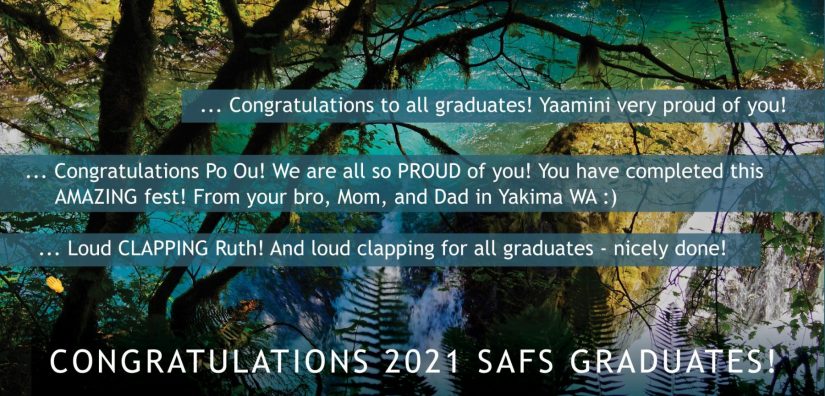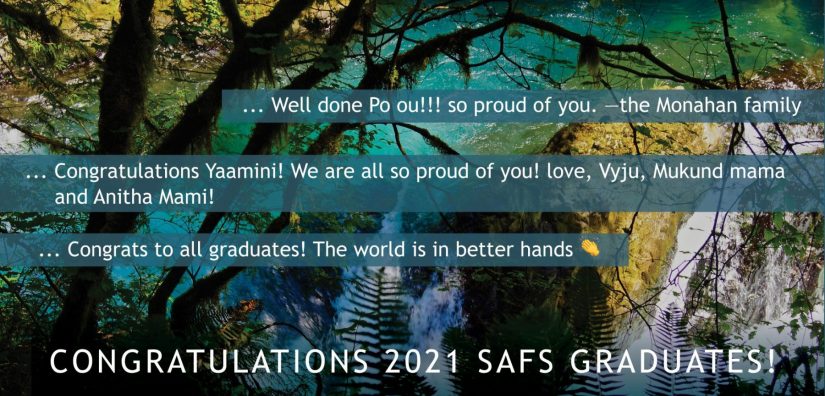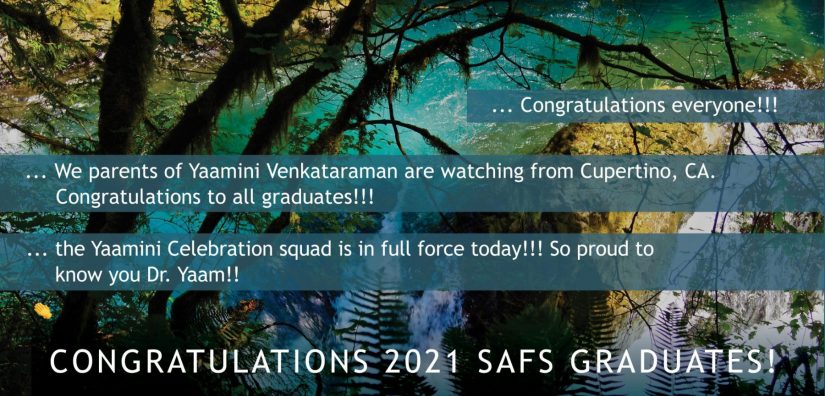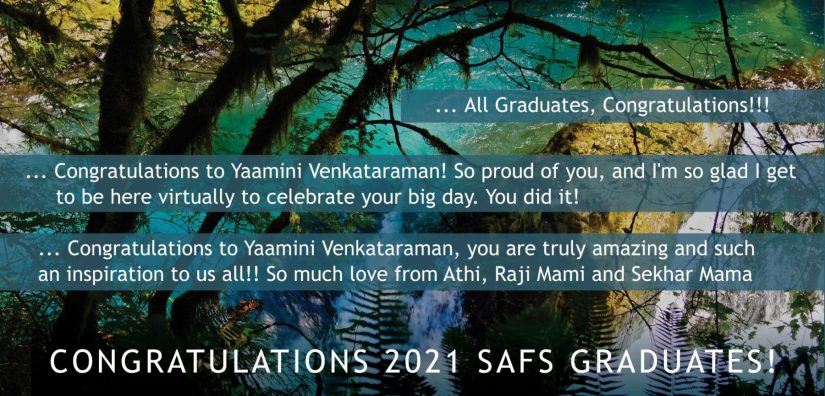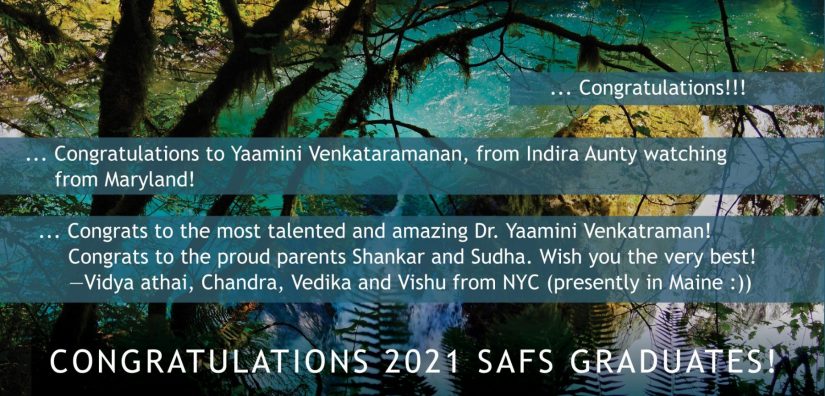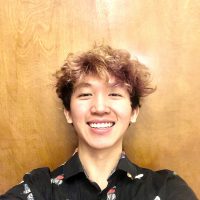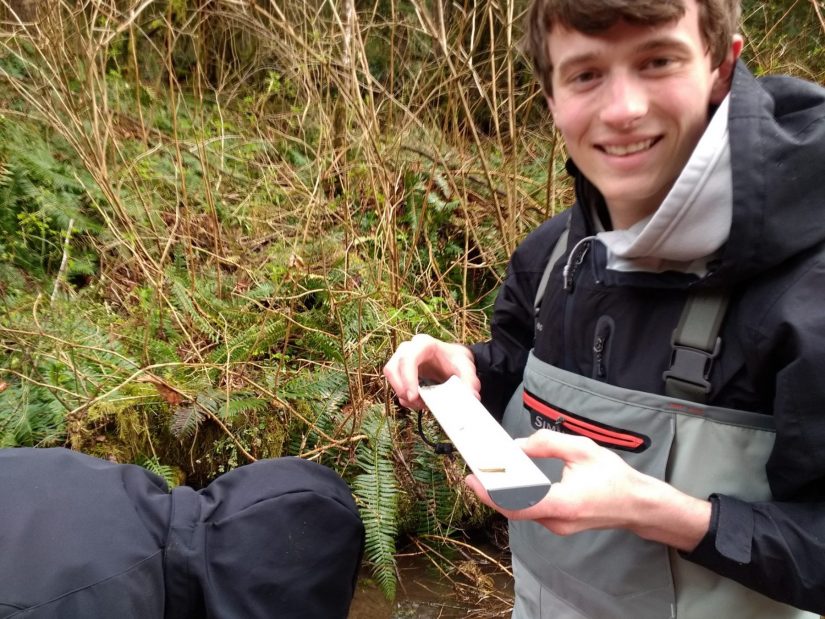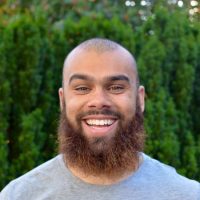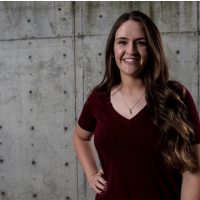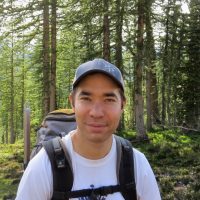Spring 2021 Graduation
Congratulations to all our graduates!
To celebrate this year’s class, we will be posting photos and anecdotes of our graduates on this page. Click a name below to expand and learn more about them!
Bachelor of Science
Ruthie Drinkwater
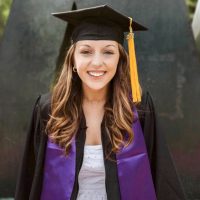 Capstone Title
Capstone Title
Determining Proportions of Monozygotic Twins and Fetus Survival Rates in Cetaceans
Capstone Description
Utilizing ecological models, we estimated the proportions of identical twins within six cetacean species. We then evaluated trends between fetal length in identical and fraternal twins, to assess the likelihood of each twin type surviving to term
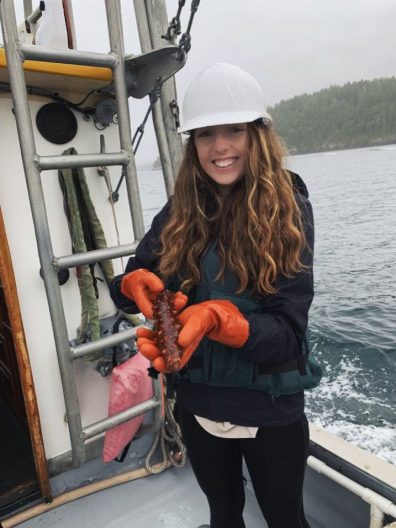
Adviser
Trevor Branch
What is your best/favorite memory during your time in SAFS?
My favorite experience with the SAFS program was going to Friday Harbor Laboratories for three weeks during early fall start. I made so many new friends, conducted interesting and fun research, and got to explore the beautiful San Juan Islands!
What was your favorite FISH class and why?
My favorite FISH class was MARBIO 488: Marine Biology in the Field at Friday Harbor Labratories because I got to conduct my own research experiment on sea cucumbers !
What is your go-to comfort food?
Banana bread
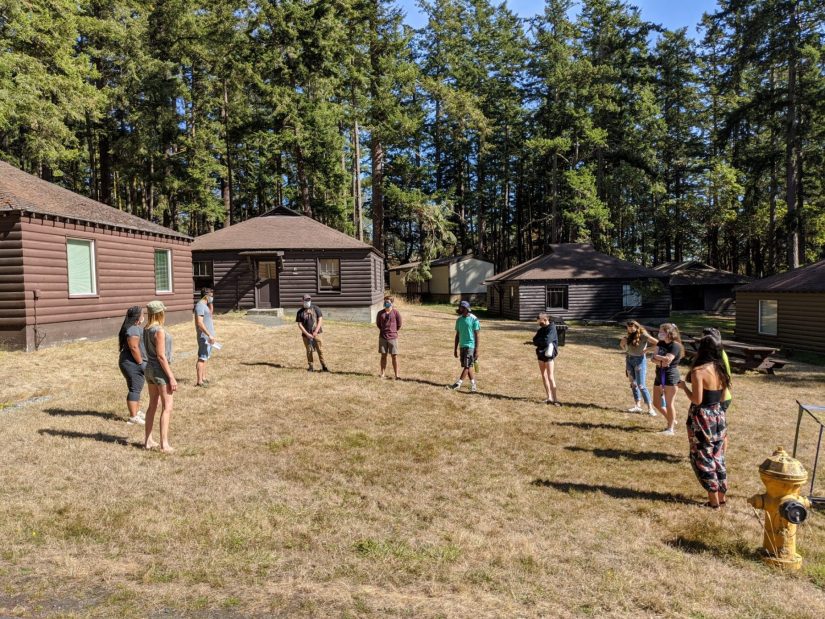
What has been your favorite way to connect with friends and family during the COVID-19 quarantine?
Socially distanced picnics and walks around Green Lake
Do you have any accomplishments and activities while at SAFS you would like to highlight?
I was honored to receive the Faculty Staff Award from SAFS.
Who would you like to thank/recognize and why?
I would like to thank my mom and dad for being my biggest supporters and inspiring me to do great things.

Po-ou Kouch
Capstone Title
Effects of inorganic carbon on competition between cyanobacteria and green algae
Capstone Description
I studied how pH and different forms of dissolved inorganic carbon effects the dominance of cyanobacteria over green algae in freshwater. Learning what conditions lead to cyanobacterial dominance in lakes is important to help protect the health of lakes/ponds and the future utilization of water as a resource.
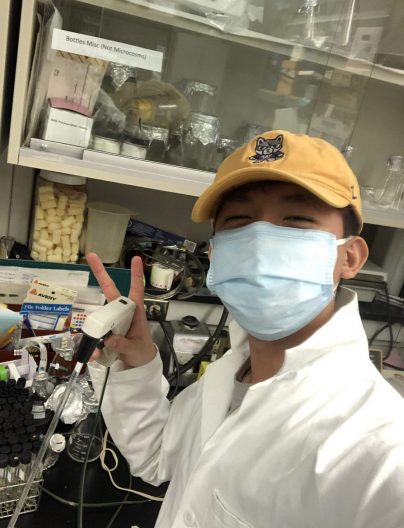
Adviser
Frieda Taub
What is your best/favorite memory during your time in SAFS?
It would have to be my time at Friday Harbor Labs, and my time working on my capstone with Professor Taub.
What was your favorite FISH class and why?
This is way too hard to answer, I have enjoyed all of my FISH classes because of all the amazing Professors and TAs teaching them. I loved all of them!
What is your go-to comfort food?
Domino’s Garlic Bread Twists
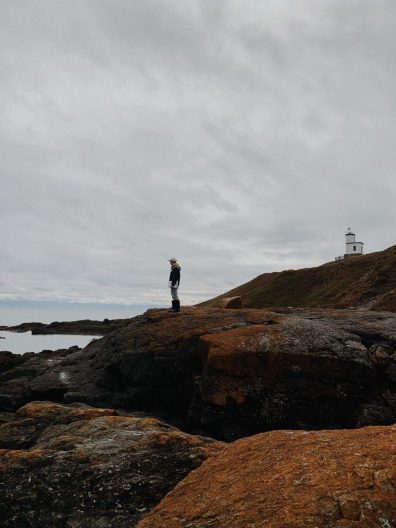
What has been your favorite way to connect with friends and family during the COVID-19 quarantine?
Phone calls to my family and girlfriend to complain about my school workload.
Do you have any accomplishments and activities while at the SAFS you would like to highlight?
I passed all my classes!
Who would you like to thank/recognize and why?
All of my professors in SAFS and especially Professor Frieda B. Taub for being one of the most compassionate, kind, funny, and incredibly intelligent people I know. You not only helped me grow as a student and scientist but also as a person. Thank you.
Parker Lehman
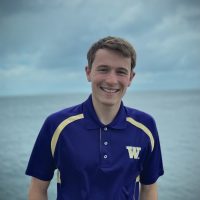 Adviser
Adviser
Carolyn Friedman
What is your best/favorite memory during your time in SAFS?
All the wonderful people I have met while at SAFS made the experience very special. I will remember the tome spent with them for the rest of my life.
What was your favorite FISH class and why?
The activities in FISH 312 (ecology) made the class stand out. It was really interesting to see how real data was collected, then write a paper on our first-hand experiences.
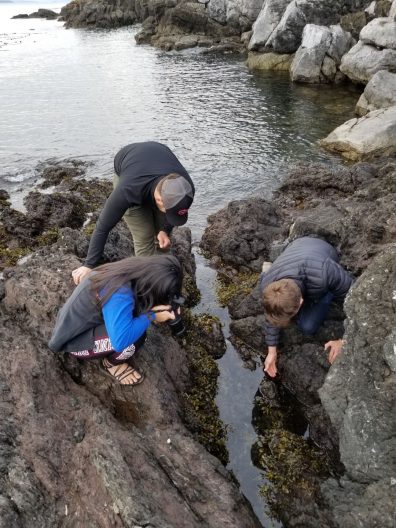
What is your go-to comfort food?
Mac n Cheese
What has been your favorite way to connect with friends and family during the COVID-19 quarantine?
Without a doubt, Zoom!
Who would you like to thank/recognize and why?
I want to give a little shout-out to my friends and family for supporting me on this journey. I would like to thank Carolyn Friedman and Bryanda Wippel for guiding me through my Capstone
Josef Mayor
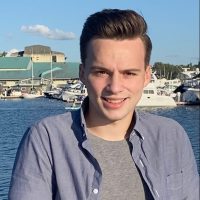 Capstone Title
Capstone Title
The effects of flow on early life history survival and migration of juvenile Chinook salmon
Capstone Description
I analyzed the relationships between peak stream flows and both the survival of Chinook salmon eggs as well as the timing of juvenile migration in the Stillaguamish River. I found that peak flows during egg incubation in the gravel were a source of mortality and related to the egg to migrant survival of a given year. I also found that higher peak flows after emergence, February through March, resulted in a higher proportion of juveniles migrating as fry, earlier and at a smaller size.
Adviser
Thomas Quinn
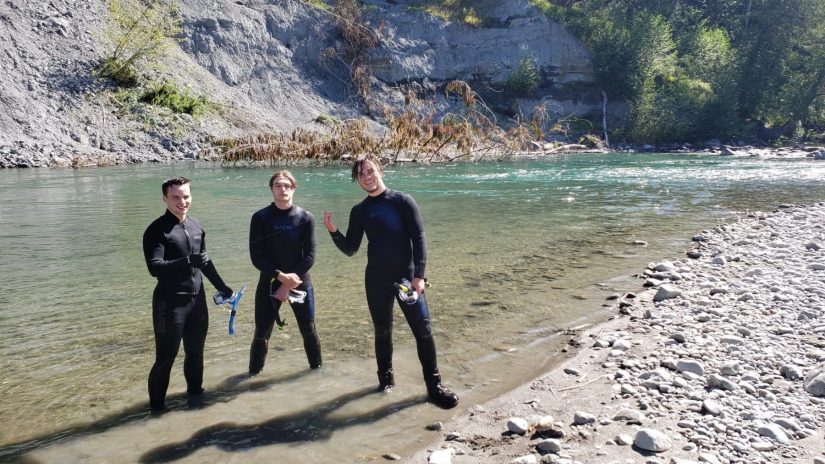
What is your best/favorite memory during your time in SAFS?
I will never forget slipping and sliding around in the mud, counting juvenile Chinook and other fishes using the Stillaguamish estuary during my internship with the Stillaguamish Tribe’s Department of Natural Resources.
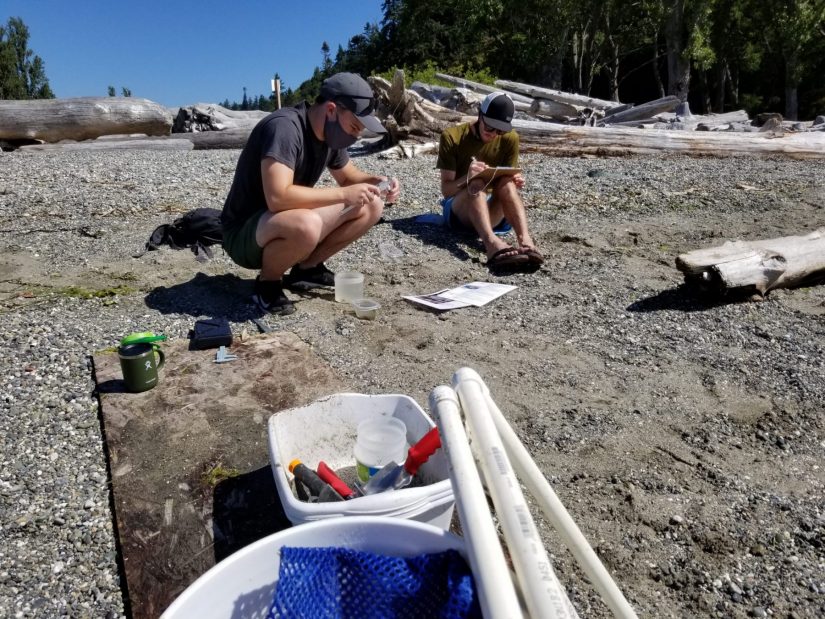
What was your favorite FISH class and why?
It is a three-way tie between the brainstorming and debates of FISH 270 labs, the exciting projects and lectures of FISH 312, and the salmon overload of FISH 450.
Do you have any accomplishments and activities while at SAFS you would like to highlight?
Faculty Merit Award
Who would you like to thank/recognize and why?
I want to thank Dr. Tom Quinn for not just guiding me through my capstone but also helping to organize an incredible internship which made my senior year both exciting and educational regardless of COVID restrictions. I also want to thank my family; from late nights polishing papers to early morning drives to the river, they have been there to support me.
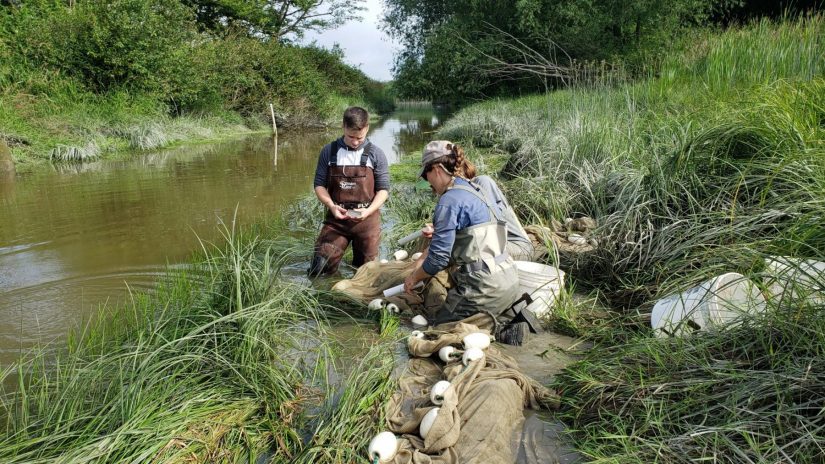
Favorite Quote
“For God so loved the world that he gave his one and only Son, that whoever believes in him shall not perish but have eternal life.” – Jesus Christ (John 3:16)
Zachary Thomas
Capstone Title
Seasonal and daily vertical migration patterns of lake Washington cutthroat trout
Capstone Description
Using a year-long data set tracking cutthroat trout movement in lake Washington, this project analyzes the patterns of trout vertical position in the water column each month of the year in correspondence with the temperature at each depth. In addition, the daily migration patterns for the fish at various locations around the lake were determined and compared with the usual patterns observed by other salmonids in lakes.
Adviser
Thomas Quinn
What is your best/favorite memory during your time in SAFS?
Nighttime beach exploring, where we went to a low tide in the dark and got to see lots of cool intertidal organisms. It inspired me to do some exploring on my own!
What was your favorite FISH class and why?
Fish 311 Biology of Fishes. It was so cool dissecting and examining so many crazy fish species and learning about some fish that I had no idea existed!
What is your go-to comfort food?
Cookies
What has been your favorite way to connect with friends and family during the COVID-19 quarantine?
My favorite way is how it pushed me to be outside so much more to get away and enjoy God’s creation
Who would you like to thank/recognize and why?
I would like to thank all my professors who helped me along the way. Especially would like to thank Tom Quinn for believing in me and guiding me to become a better writer and scientist.
Of course, I am eternally grateful to my parents and sister for all of their support, and thank you Jesus for helping me get through college!
Favorite Quote
“For God so loved the world that he gave his one and only Son, that whoever believes in him shall not perish but have eternal life.” – Jesus Christ (John 3:16)
Master of Science
Kerry Accola
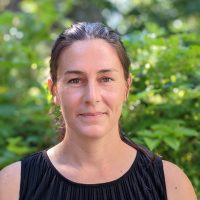 Thesis Title
Thesis Title
Diel Habitat Use by Juvenile Pacific Salmon Along an Urban Shoreline
Thesis Description
I used a multibeam sonar to study day/night juvenile salmon distributions along urban, eco-engineered seawall habitat
Advisers
John Horne, Jeff Cordell, Jason Toft
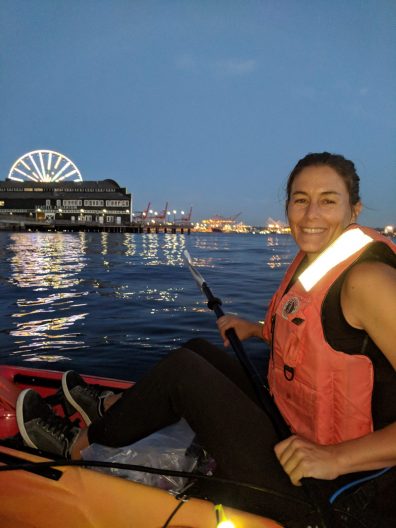
What is your best/favorite memory during your time in SAFS?
Attending Bevan and Quantitative seminars
What was your favorite FISH class and why?
This is a hard choice because I loved all my classes. I’d probably choose Beautiful Graphics in R…for the material as well as Trevor Branch’s simple, yet effective, teaching style.
What is your go-to comfort food?
Tea and toast
What has been your favorite way to connect with friends and family during the COVID-19 quarantine?
Believe it or not–more Zoom calls. And outdoor walks and hikes
Do you have any accomplishments and activities while at SAFS you would like to highlight?
I am a 2021 Faculty Merit Award recipient!
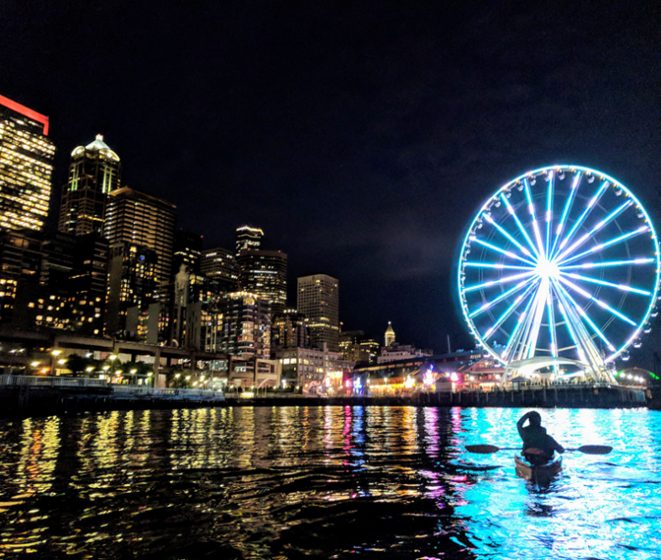
Who would you like to thank/recognize and why?
My advisers, who were instrumental throughout my graduate process, and who gave me room to grow as a scientist.
Kristin Gale McQuaw
Thesis Description
Rebuilding mixed stock fisheries: lessons from the U.S. West Coast
Adviser
Ray Hilborn
Bob Oxborrow
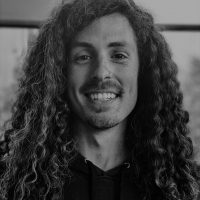 Thesis Title
Thesis Title
Epibenthic invertebrates and juvenile salmon prey availability along an eco-engineered shoreline: A case study at the recently constructed seawall in Seattle, WA.
Adviser
Charles Simenstad
Stephanie Thurner
Thesis Title
Key factors that exacerbate declines in exploited multispecies systems
Thesis Description
I used computer simulations and fishery independent survey data to understand if — and when — the human harvest of economically valuable species can lead to extinction and examine which factors explain trends in abundance of different fish stocks
Adviser
Trevor Branch
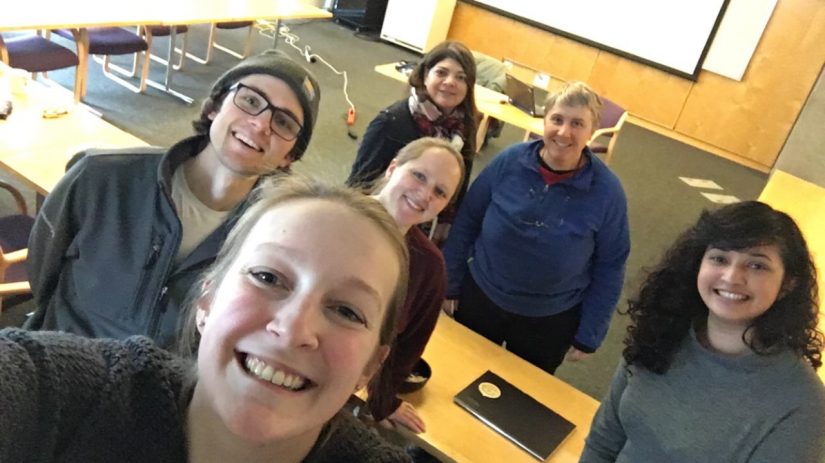
What is your best/favorite memory during your time in SAFS?
Just thinking about this question brings back a flood of wonderful memories. Some of my favorite memories are at Friday Harbor labs for Andre’s FSH 559/558 workshops and the graduate student retreats. Whether we were in the cafeteria late at night laughing (crying) at the 50th time our code crashed (the grey bomb image will haunt me forever), drinking coffee on the hill overlooking the sound, chilling with all the deer, or laughing after someone accidentally walked off the dock into the water and managed to miraculously save their instrument (don’t worry, she is okay!), I always had a really fun time.
A special shout out to my cohort when we were voted to perform karaoke at the SAFS spring picnic and we rewrote the lyrics to “I will survive”. We in fact did survive!!! *cue music* “With dreams of science publications to satisfy, Do you think we’d crumble? Did you think we’d lay down and die? Oh no, not us, we will survive!
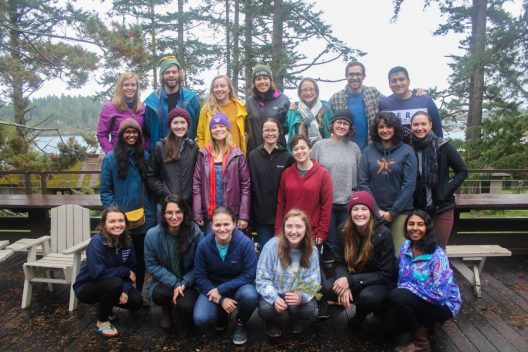
What was your favorite FISH class and why?
There are so many really spectacular FISH classes and it is essentially impossible to choose a favorite. One of my many favorite classes was the unique and irreplaceable class that Tim, and his co-instructors from ComedySportz, created called “Applied Improvisation for Science Communications”. In this course, Tim helps to teach students how to apply key concepts and skills from improvisation to scientific communications, with the goals of enhancing our connection with the audience, allowing individuality to shine through, and making each participant a more engaging presenter. As someone who has never enjoyed public speaking, thanks to this class, I am learning to embrace the unexpected, to perform from a place of joy, to communicate to be understood, and that it is okay to fail sometimes because it is the only way to improve.
What is your go-to comfort food?
Depends on who is cooking… If I am cooking — mashed potatoes. If my mom is cooking — pierogis.
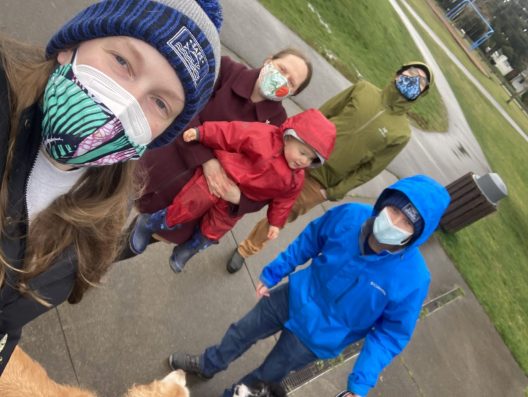
What has been your favorite way to connect with friends and family during the COVID-19 quarantine?
Masked dog walks and distanced drinks at Sunset Place park
Who would you like to thank/recognize and why?
I have so many people to thank and I could never fit them all here. Foremost, I would like to express my sincere gratitude to my advisor, Trevor Branch. I am proud to have been a part of your lab, Trevor, and am a better scientist and person for it. I would also like to thank Sarah Converse, Christopher Anderson, and Andre Punt for their guidance, mentorship, collaboration, and support. I cannot overstate the profound impact all four of these individuals have had on my formative years as a scientist, I would not be where I am today without them.
I thank my fellow Branch lab mates for the stimulating discussions and comradery. I also thank my fellow SAFS graduate students for their friendship, never-ending support, and all the fun we have. Last, but certainly not least, my heartfelt thanks to my family (including Gibson) for their steadfast love, help, patience, and support. I could not have done this without you.
Favorite Quote
“I alone cannot change the world, but I can cast a stone across the waters to create many ripples” —Mother Theresa
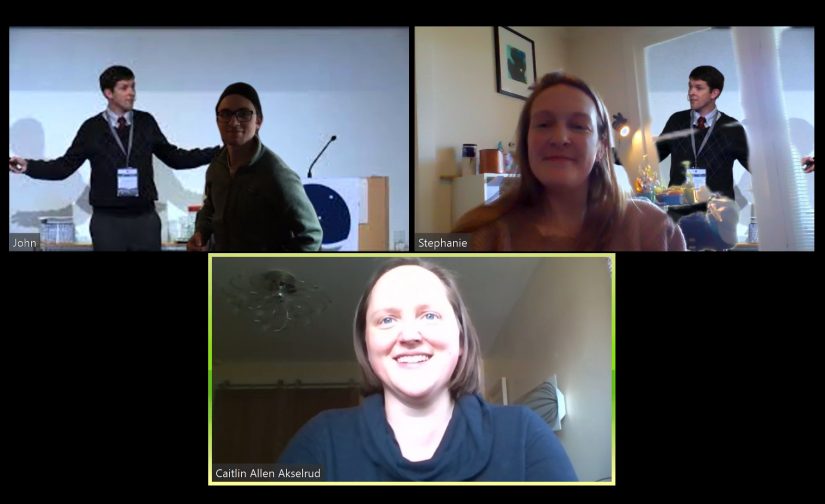
Doctor of Philosophy
Lukas DeFilippo
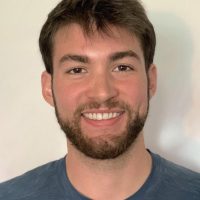 Dissertation Title
Dissertation Title
Salmon life histories and fisheries management
Dissertation Description
Investigated interactions between population dynamics and life history evolution in salmon populations with implications for fisheries management.
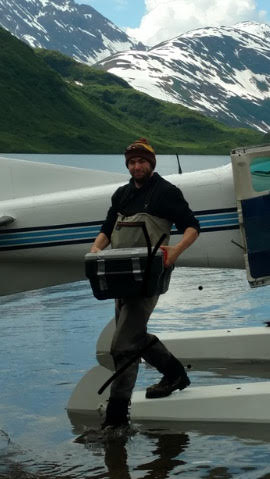
Adviser
Daniel Schindler
What is your best/favorite memory during your time in SAFS?
Fieldwork in Kodiak!
What was your favorite FISH class and why?
FISH 559 – It was the hardest class I took, but where I learned the most.
What is your go-to comfort food?
Gummy Bears
Do you have any accomplishments and activities while at SAFS you would like to highlight?
I graduated!
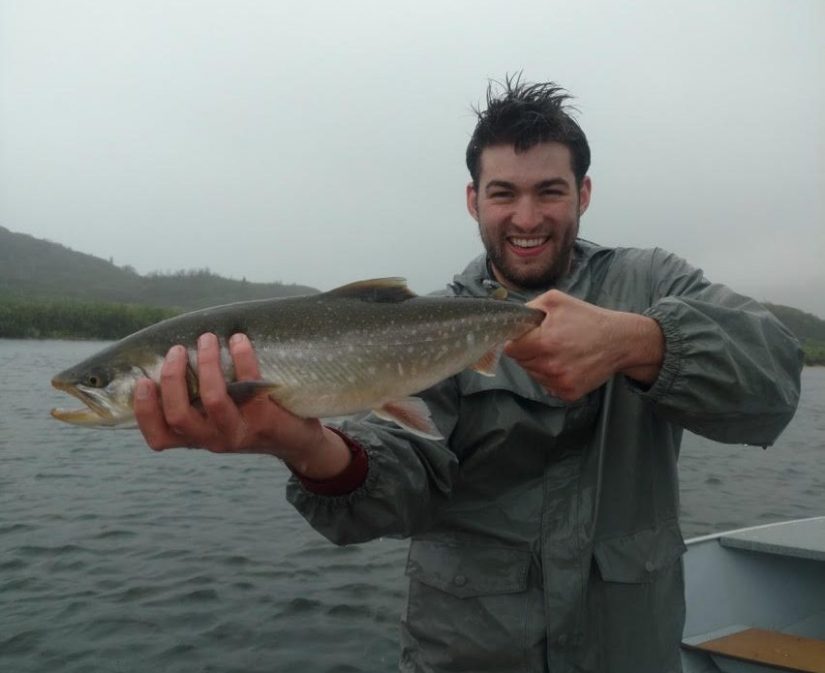
Who would you like to thank/recognize and why?
My committee members—Andre Punt, Barry Berejikian, and Alex Gagnon—for their outstanding mentoring. The entire Schindler lab for years of friendship, camaraderie, and support. My father for always encouraging me to pursue my interests in aquatic science.
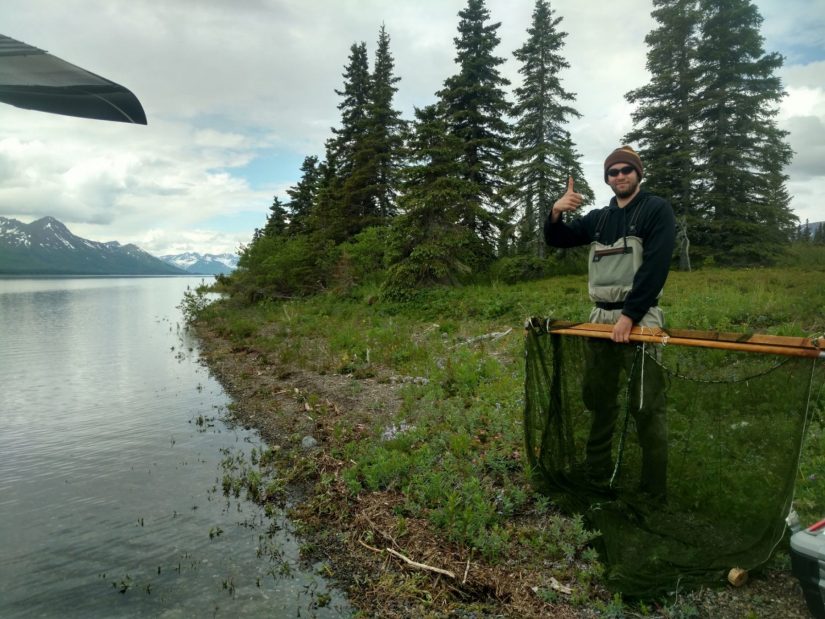
Natalie Lowell
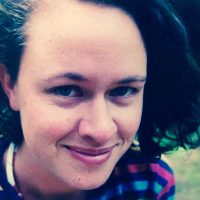 Dissertation Title
Dissertation Title
A genetic risk assessment of native shellfish aquaculture
Dissertation Description
Using a multidisciplinary approach, I investigated population connectivity in two shellfish species considered for aquaculture, the genetic risks of shellfish aquaculture to wild populations, and the regulatory context around this emerging policy issue.
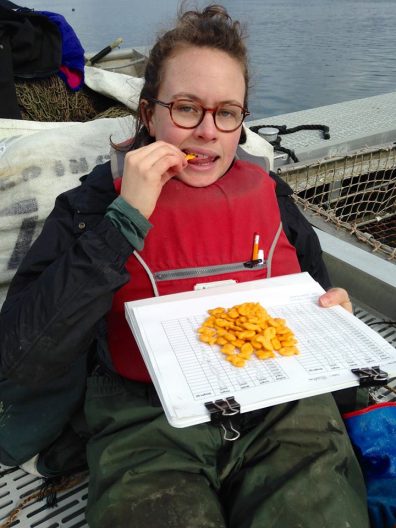 Adviser
Adviser
Lorenz Hauser
Who would you like to thank/recognize and why?
I’d like to thank my family and friends for keeping me grounded and believing in me.
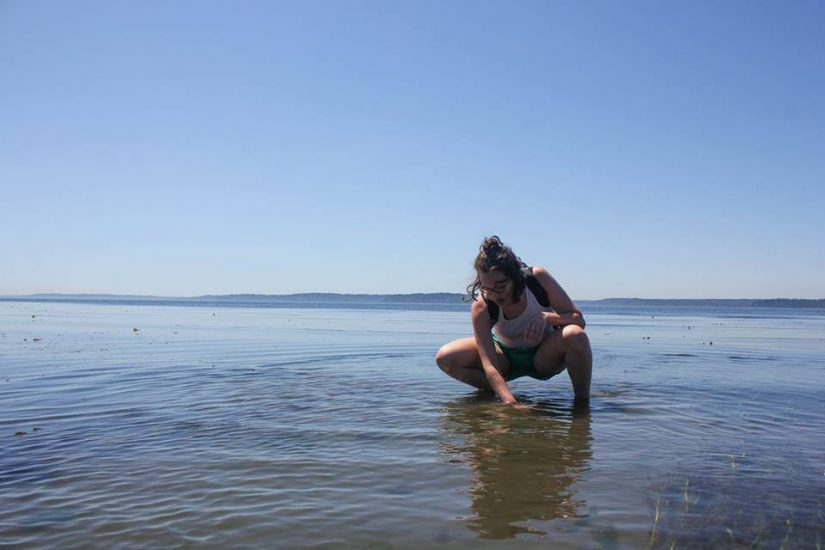
Sean Rohan
Dissertation Title
Effects of variation in the visual environment on feeding and catchability of Alaska marine fishes
Dissertation Description
Developed a new method to monitor water clarity and examined how light and water clarity affect fish visual feeding and behavioral interactions between fish and fishing gear in the Bering Sea and Chukchi Sea.
Adviser
Tim Essington
What is your best/favorite memory during your time in SAFS?
A toss-up between working with folks on running Students Explore Aquatic Sciences, the Aquatic Sciences Open House, Spring Picnic, and the Graduate Student Retreat.
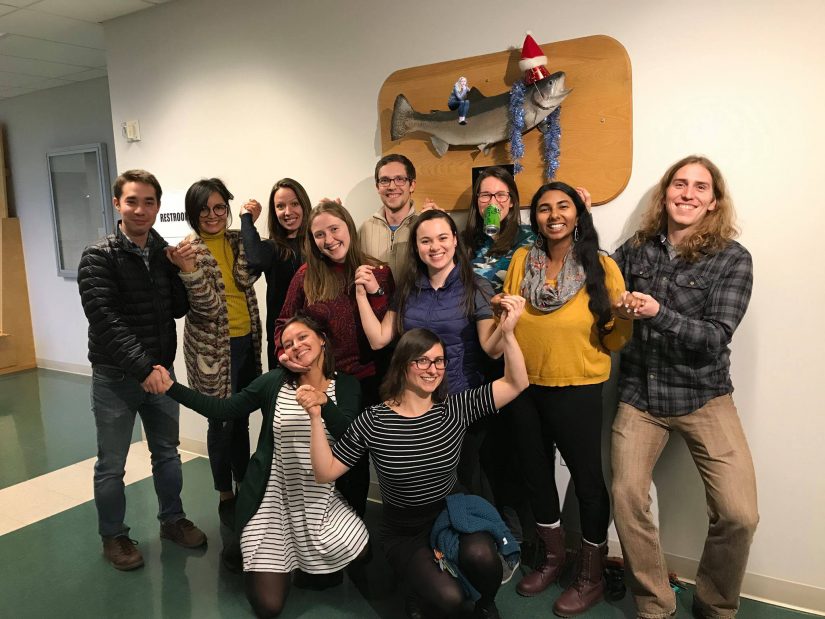
What was your favorite FISH class and why?
Outreach in Aquatic and Fishery Sciences to Diverse Audiences (FISH507)
Who would you like to thank/recognize and why?
Thank you to my cohort for your support and friendship! And thank you to Tim Essington and ELAF for being such a supportive community!
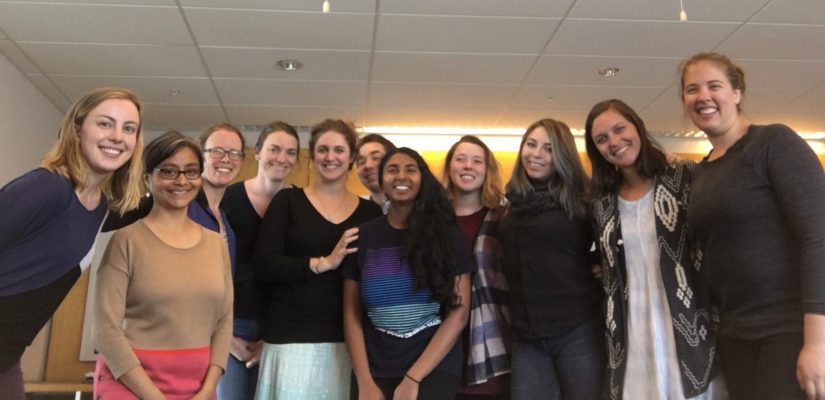
Laura Spencer
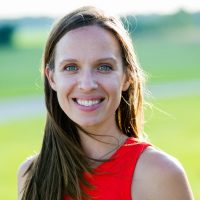 Dissertation Title
Dissertation Title
Response of native shellfish populations to ocean acidification
Dissertation Description
Species native to a region that experiences natural pH and temperature fluctuations may be relatively tolerant to shifting ocean conditions in part due to genetic variation and trans-generational plasticity. To inform conservation, restoration, and commercial production of our native shellfish species, my research explores physiological and molecular responses of adults and their offspring following parental exposure to climate stressors.
Adviser
Steven Roberts
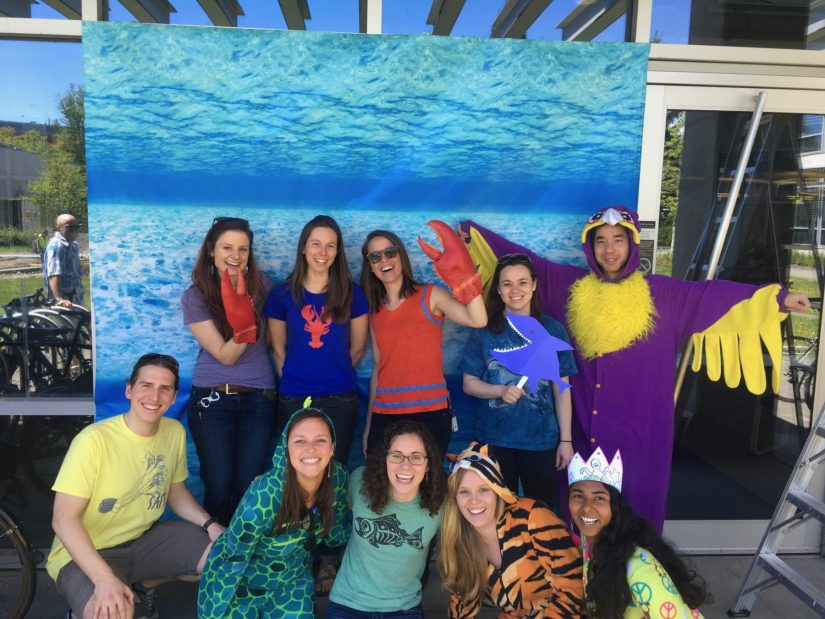
What is your best/favorite memory during your time in SAFS?
Wow, what a question! Some of the most memorable days were the ones spent with fellow SAFS folks (graduate students, undergrads, post-docs, and even a couple of faculty) working on experiments. Most days included catching an early ferry to the peninsula, then working long hours to maintain experiments, build hundreds of “silos,” or sample animals. They often ended with cold beers snuck on to the ferry.
What was your favorite FISH class and why?
I really enjoyed Parasite Ecology taught by Chelsea Wood, since I could share little creepy tid-bits about brain or digestive system parasites with my friends and family, including which things to absolutely not eat, such as undercooked (pork).
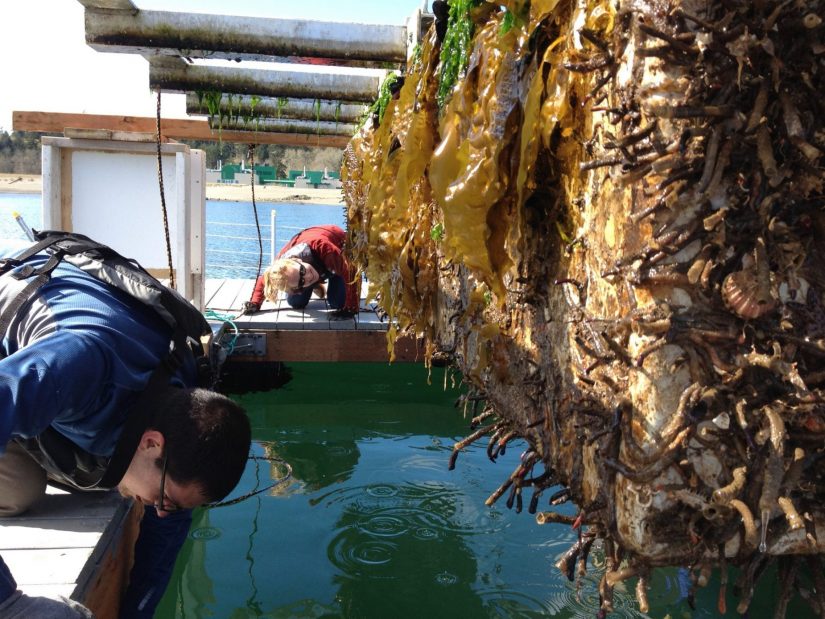
What is your go-to comfort food?
Scrambly eggs on toast with hot sauce – this kept me alive through graduate school.
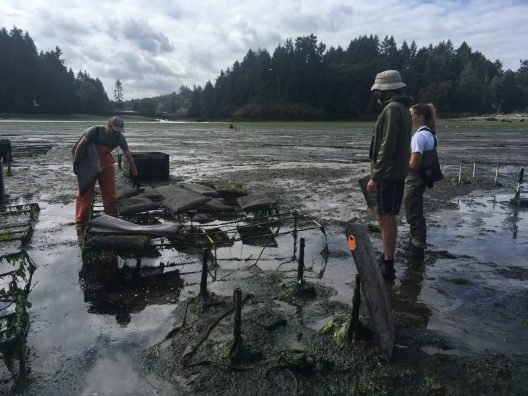
What has been your favorite way to connect with friends and family during the COVID-19 quarantine?
I’ve had a nice little quarantine club, and we have gotten together weekly to play cards or debate politics and things. I also really enjoyed our Roberts Lab Pub-a-thon and Science Hour meetings.
Do you have any accomplishments and activities from your time at SAFS that you would like to highlight?
I got to do a research fellowship in Australia. While it probably wasn’t the most productive use of my time, it was really exciting. I also had the opportunity to do a fellowship with the NOAA Northwest Fisheries Science Center, which was somewhat constrained due to COVID, but it was still very helpful to get to know researchers there.
Who would you like to thank/recognize and why?
Members of the Roberts Lab, past and present. Thanks for all your help (at all hours) with everything from the smallest bioinformatics/coding issues to helping me completely reshape presentations. It’s been really incredible working with you for the past 5 years, and I have decided to ignore the fact that it won’t continue (at least in the same capacity). Also huge thanks to my husband Ian, parents, sister, brother and their families, and in-laws for your support over the years, and especially for all the free childcare you’ve provided during this end-of-degree push.
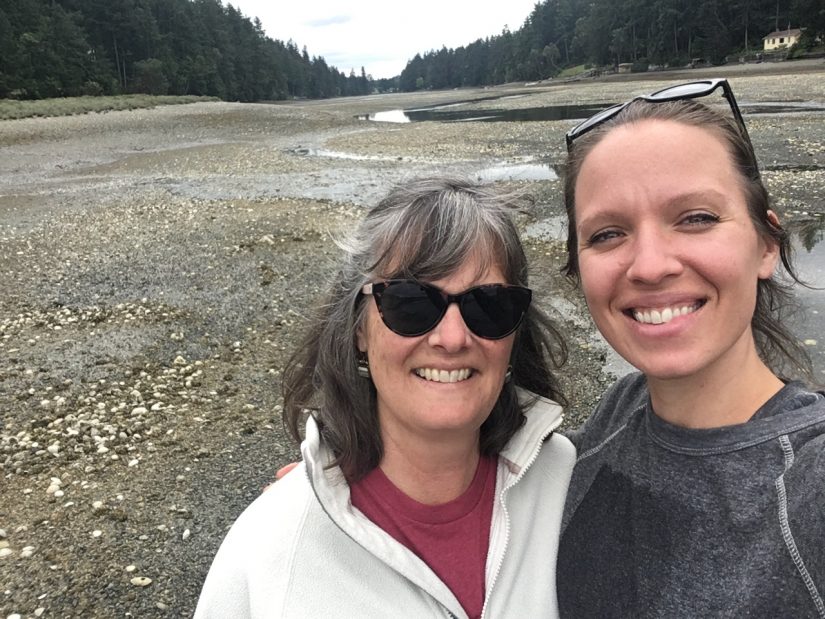
John T. Trochta
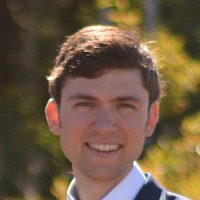 Dissertation Title
Dissertation Title
Modeling population collapse and recovery in herring
Dissertation Description
My dissertation sought to answer what factors explain large declines and increases in the abundance of herring, a small, but important fish in the world’s northern oceans. Specifically, I devised and programmed statistical models to describe changes in herring abundance over time and analyze the possible causes of these changes.
Adviser
Trevor Branch
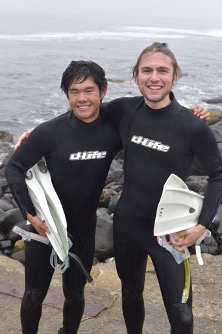
What is your best/favorite memory during your time in SAFS?
So many… I think I am especially fond of the times at various meetings and workshops. These were awesome opportunities to network with researchers in the fisheries world, and also to better know and connect with people from SAFS outside of research. For example, I learned how my advisor (Trevor) is really good at billiards (and he learned how I am not, haha).
What was your favorite FISH class and why?
Andre Punt’s courses (FISH 558 or 559). Honestly, these were grueling at times, but I never before learned so much in such a short period of time. Plus, who knew you could have fun coding in TMB and working under Andre.
What is your go-to comfort food?
PB&J sandwich
What has been your favorite way to connect with friends and family during the COVID-19 quarantine?
Video calls. Zoom fatigue is real, but I know quarantine would have been much more difficult without it.
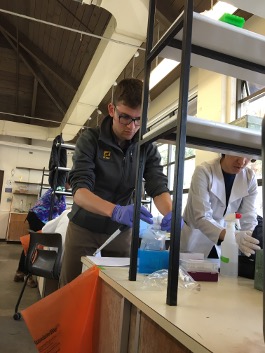
Do you have any accomplishments and activities while at SAFS you would like to highlight?
Halfway through my PhD, I was awarded the Bonderman fellowship which fully funded an 8-month solo trip around the world. The purpose was not to work or do research, but to immerse in and engage with the global community. The life-changing experiences I had continue to guide my interactions with all people and my positive outlook on humanity.
Who would you like to thank/recognize and why?
First would be Trevor, my advisor. He is such a brilliant and accommodating mentor, and I am grateful beyond words for his support and guidance inside and outside of my PhD. Second, I thank my parents and sister for their support in all my ambitions, no matter how far away it took me. I am here because of their love and life lessons. Finally, I acknowledge my best friend and life partner, Erin, who has been so patient and willing to embark on this journey with me. I couldn’t have accomplished any of this without her.
Favorite Quote
“Let the beauty we love be what we do. There are hundreds of ways to kneel and kiss the ground.” – Jalāl ad-Dīn Mohammad Rūmī
Yaamini Venkataraman
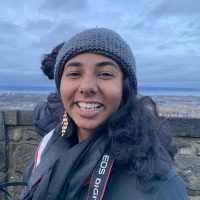 Dissertation Title
Dissertation Title
Looking under the hood: Using Pacific oysters to understand genomic responses to environmental change
Dissertation Description
As climate change progresses, many marine invertebrates will need to rapidly respond to environmental change like ocean acidification. My dissertation uses Pacific oysters to demonstrate how “-omic” techniques can shed light on stress responses, allowing us to understand how organisms and ecosystems may be resilient to future conditions.
Adviser
Steven Roberts
What is your best/favorite memory during your time in SAFS?
I don’t have any specific memory but really appreciated any time graduate students worked together for a common goal: whether that was organizing retreats, pushing for institutional change, or assisting with the SAFS Open House events.
Who would you like to thank/recognize and why?
I genuinely appreciate all of the support I’ve gotten from my adviser, lab, committee, and the SAFS community at large. Above all, I could not have done this without the constant encouragement and love from my parents, extended family, and friends.
